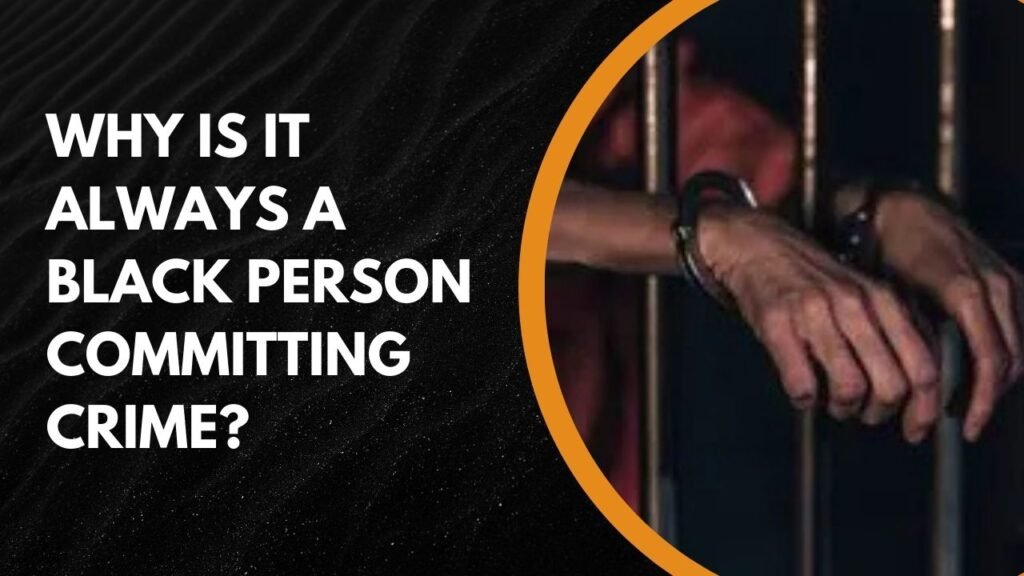Is It A Crime To Be In A Gang? Being in a gang itself is not necessarily a crime, but involvement in illegal activities such as drug trafficking, violence, or organized crime can lead to criminal charges.
Gang affiliation is a topic often associated with crime and violence, but is simply being part of a gang a crime in itself? In many parts of the world, gangs are seen as groups that contribute to illegal activities, yet not every individual who associates with a gang is directly involved in criminal acts.
Understanding the legal implications of gang membership might be a complex one because it involves legislations that combat criminal offenses attributed to gangs and not just imprisoning individuals who are gang members.
This article analyzes if joining a gang is a crime, how gangs have to deal with crime, and the legal and societal implications of gang membership on society.
Contents
- 1 1. Introduction
- 2 2. What Is a Gang?
- 3 3. Is Being a Gang Member a Crime?
- 4 4. Criminal Activities Often Linked to Gangs
- 5 5. Gang Enhancements and Enhanced Sentencing
- 6 6. Legal Defenses Against Gang Charges
- 7 7. The Impact of Gangs on Society and the Legal System
- 8 8. Conclusion: Is It A Crime To Be In A Gang?
- 9 9. FAQs
1. Introduction
Understanding the Legal Implications of Gang Membership
When the general public hears the term gangs, pictures of illegal crimes such as drug sales, violence, and organized crime may immediately enter their minds. Gang membership itself does not necessarily involve criminality, however.
While membership in gangs does involve a higher rate of criminal participation, not every member of a gang is an active participant in criminal activities.
It is necessary to differentiate between being a member of a gang and engaging in criminal activity that can be attributed to gang membership. [Is It A Crime To Be In A Gang?]
In most jurisdictions, membership itself is not considered a crime by the law, but for the benefit of or in the name of the gang, committed actions can have severe legal ramifications.
The law around gang membership may differ significantly from state to state, country to country, and even from city to city, so it is crucial to be aware of the local law.
Why It’s Important to Know the Law Regarding Gangs
It is useful to know the law’s reaction to gang membership, particularly if you are being charged with gang activity. It is also useful for residents of areas with gang infestation to know the legal repercussions of gang membership.
In certain areas, the justice system may react harshly to inadvertent contact with gangs, often equating gang membership with violence or criminality, even when they themselves are not involved in criminal activity. [Is It A Crime To Be In A Gang?]
By learning about how gang laws are written, you are able to avoid being in situations that would lead to criminal prosecution solely based on association. Further, legal consequences of gang activity usually influence sentencing, defense strategies, and public policy.
2. What Is a Gang?
Defining a Gang: How It Is Different from Other Organizations
A gang can be defined as a group of individuals who come together with a common purpose, which can be illegal, but there are gangs with non-criminal purposes as well.
The most identifying feature between a gang and other groups is generally the group’s purpose, activities, and group operation. Gangs typically consist of criminally organized activities like drug dealing, violence, and extortion.
One of the characteristics shared among gangs is a hierarchical structure that may have leaders, middle-management members, and lower-level members. [Is It A Crime To Be In A Gang?]
The structure may have some codes of conduct and loyalty, with members obligated to abide by rules that may include confidentiality, territoriality, and adherence to criminal acts.
Even though not all gangs are involved in crime or violence, most do have some involvement in illegal business. This varies from simple things such as shoplifting to dangerous crimes such as murder, robberies conducted in an organized form, or drug dealing.
Key Characteristics of Gangs
Organization: Gangs are organized hierarchically, with commanders issuing instructions and followers taking orders. This is the most significant aspect that distinguishes gangs from groups of individuals who lack organization. [Is It A Crime To Be In A Gang?]
Criminal Intent: The primary reason for the formation of the majority of gangs is to achieve profit illegally. These may include drug dealing, illegal arms trafficking, or committing violent crimes to claim land.
Symbols and Identity: Most gangs have some symbol, color, or tattoo with which members identify. Symbols are typically used to show allegiance and distinguish themselves from their rivals.
Cultural Influence: Gangs are influenced by the area where they originate from, for example, the societal and economic conditions members face. For example, some gangs emerge because of poverty, marginalization from society, or unemployment.
3. Is Being a Gang Member a Crime?
Membership Alone: Is It Criminal?
Merely belonging to or being part of a gang is not, in most cases, a criminal offense. It is not an offense to be a member of a gang according to most states. [Is It A Crime To Be In A Gang?]
Legislation against organized crime is, however, targeted at activities carried out by members affiliated with criminal gangs. The criminality only comes into play when the individual’s actions in the gang lead to crimes or aid gang crime.
While being a gang member may expose people to prosecution in case of crime being committed, it is not membership in a gang that turns one into a criminal. Rather, it’s engaging in or helping with the illegal operations of the gang that may initiate legal repercussions.
The Legal Approach to Gang Membership
The police typically track gang affiliation to gain a greater understanding of criminal groups. Police officers and prosecutors can try to stigmatize an individual as a gang member in order to prevent crimes or enhance criminal punishments for gang members’ crimes.
The law typically does not punish the mere affiliation unless evidence shows that the individual is involved in illegal activity. [Is It A Crime To Be In A Gang?]
For example, in some anti-gang legislation, one might be charged if it is established that they have been engaging in crimes on behalf of the gang but did not directly commit the offense.
Relevant Laws and Legislation on Gang Membership
In some legal systems, gang membership may be admissible as evidence in criminal trials. For example, in the United States, the Racketeer Influenced and Corrupt Organizations Act (RICO) is often used to prosecute criminal organizations, such as gangs.
RICO allows for the prosecution of individuals engaged in organized crime, including crimes committed by gang members in the furtherance of the objectives of the gang. [Is It A Crime To Be In A Gang?]
Also, gang enhancements are laws that attach extra penalties to those who commit a crime as a gang member. Gang enhancements can substantially add to the length of the sentence one gets when convicted of a crime and is found to be a gang member.
The four criminal activities that tend to be associated with gangs are:
4. Criminal Activities Often Linked to Gangs
Common Crimes Associated with Gangs
While gang membership alone doesn’t have to be illegal, most gangs engage in illegal activities. Some of the most common criminal activities associated with gangs include:
Drug Trafficking: Many gangs deal in the sale of illegal drugs. They may specialize in specific areas or markets where drugs are distributed and often employ violence to protect their enterprise. [Is It A Crime To Be In A Gang?]
Violence and Organized Crime: Gangs are typically associated with violent criminal activity, including assault, robbery, and homicide. These activities are typically carried out to protect gang territory, punish rivals, or enforce gang rules.
Theft and Extortion: Gangs will typically use extortion techniques to control businesses or individuals in their area. This can include extorting businesses in the area for “protection” money or stealing goods to fund the operation of the gang.
How These Activities Lead to Criminal Charges
When gangsters do something that constitutes a criminal act, the law can criminally hold them responsible. Just being present at a crime may be enough; they can still be charged as accessories to conspiracy against the gang’s criminal scheme.
For example, a person providing resources or intelligence to a gang of drug smugglers could be charged with conspiracy even without their hands directly coming into contact with drugs. [Is It A Crime To Be In A Gang?]
Apart from that, laws like RICO allow for the prosecution of an organization as a whole based on the collective criminal activity of its members. This means that membership in a gang—if it is linked with criminal activity—may result in serious legal penalties.
5. Gang Enhancements and Enhanced Sentencing
What Are Gang Enhancements?
Gang enhancements are laws that add additional punishment for defendants who have been convicted of gang-related crimes. The enhancements aim to reduce gang violence by criminalizing gang-related activity.
For example, an individual convicted of an aggravated offense such as robbery or assault might receive much more time if the court finds that the offense was for gang interest enhancement purposes. Gang enhancements are applied to a very wide range of crimes, from burglary to selling drugs to even homicide.
The Impact of Gang Membership on Sentencing in Criminal Cases
Gang affiliation can also significantly impact a sentence. When an individual is found guilty of a criminal offence, and gang affiliation, the sentence can be enhanced by a substantial number of years.
For instance, in some cases, a sentence on conviction for drug trafficking can be lengthened by several years if the individual is found to be a gang member. [Is It A Crime To Be In A Gang?]
Examples of Enhanced Sentences in Gang-Related Crimes
Consider, for instance, the situation where someone is arrested for assault. If the assault is gang-related, then the defendant can face enhanced punishment. A typical charge of assault may pull 2 to 3 years, but a gang enhancement can add on 10 and even more.
6. Legal Defenses Against Gang Charges
Possible Defenses for Gang Membership
If you are charged with gang membership or participation, there are a few defenses that may be used. One of the most common defenses is that the individual was not involved in any kind of criminal activity, even if they were a gang member.
Lack of Criminal Activity: It’s essential to prove that being associated with a gang does not always mean engaging in criminal activities. If you can prove that you were not involved in the unlawful activity, your case may be discarded or downgraded. [Is It A Crime To Be In A Gang?]
No Direct Involvement in Criminal Activity: The majority of gang members are not directly involved in criminal activity but may still be implicated due to their membership. In such a case, being able to prove that you were not directly involved in the criminal activities of the gang can help you avoid harsh punishment.
How a Criminal Defense Lawyer Can Help
If you are charged with gang membership offenses, a lawyer who defends against criminal charges is essential. They can go through evidence, challenge allegations of gang activity, and help reduce your sentence by referring to any lack of immediate involvement in criminal activity.
See Also:Is It A Crime To Be Gay In Iran? Homosexuality in Iran
7. The Impact of Gangs on Society and the Legal System
How Gangs Affect Communities
Gangs exert a deep negative impact on the communities where they exist. Gangs are typically followed by higher violence, drug use, and fear. These are conditions that can erode the relationship between law enforcement and the community and make citizens feel less safe. [Is It A Crime To Be In A Gang?]
The Legal System’s Approach to Gang-Related Crime
The justice establishment is serious about gang crime due to its threat to public safety. Special task forces are usually established to counter gang violence, and special legislation—such as RICO and gang enhancements—is employed to disrupt gang operations and destroy their grip.
Preventative Measures and Legal Actions Against Gangs
Governments and communities can employ a range of strategies to reduce gang activity, including community outreach programs, anti-gang education, and social support programs aimed at helping vulnerable individuals avoid gang membership.
8. Conclusion: Is It A Crime To Be In A Gang?
Membership in a gang is not always a crime, but it is a crime if the gang engages in criminal activity. The law tends to prosecute criminal activity resulting from gang membership rather than punishing the person for membership. However, membership in a gang can result in harsher punishment or legal penalties if associated with crime.
9. FAQs
1. Is gang membership illegal?
No, simply being a gang member is not illegal. Criminal activity committed by gang members, however, may lead to penalties under the law.
2. What is an enhancement for gang involvement in a criminal case?
An enhancement imposes additional punishment upon a crime that is committed with gang involvement. [Is It A Crime To Be In A Gang?]
3. Can you be charged with being a gang member?
You can be charged if your membership in a gang involves criminal activity, but mere membership in a gang is not typically chargeable.
4. What is the connection between criminal sentencing and gang affiliation?
Gang membership can lead to aggravated sentences for crimes that are committed in addition to gang-related activity due to gang enhancements.

Vicente Underwood is from New Jersey, USA. He studied law and now works with his senior. In his free time, he writes blogs. Jackson is a proud father of two girls and enjoys balancing his work and family life.




